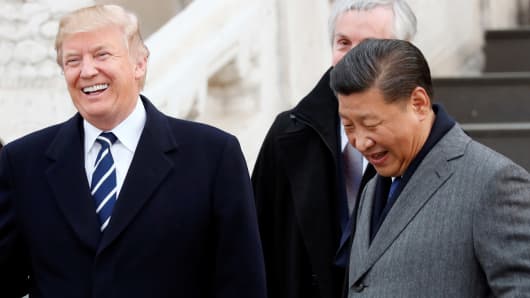HTTP/1.1 200 OK Content-Type: text/html; charset=utf-8 Server: Apache/2.4.6 (CentOS) PHP/7.0.23 X-Powered-By: PHP/7.0.23 X-Aicache-OS: 172.31.15.184:80 Cache-Control: max-age=15 Expires: Mon, 04 Jun 2018 12:15:18 GMT Date: Mon, 04 Jun 2018 12:15:03 GMT Transfer-Encoding: chunked Connection: keep-alive Connection: Transfer-Encoding Set-Cookie: region=USA; expires=Sun, 02-Sep-2018 12:15:03 GMT; path=/; domain=.cnbc.com Set-Cookie: AKA_A2=A; expires=Mon, 04-Jun-2018 13:15:03 GMT; path=/; domain=cnbc.com; secure; HttpOnly Link: ;rel="preconnect" Vary: User-Agent US-China ties in focus as American Institute in Taiwan launches new office
The American Institute in Taiwan, a non-profit that operates as the de-facto U.S. embassy in Taipei, is set to launch its new office that day and a senior U.S. official — many theorize it could be National Security Advisor John Bolton[4] — is widely expected to attend.
The $250 million facility is reportedly twice the size of the current building and represents a major strengthening of U.S.-Taiwan relations. But it could also add strain to a U.S.-China relationship that's already weighed down by trade tensions[5].
 Jonathan Ernst | Reuters
Jonathan Ernst | Reuters
President Donald Trump visits the Forbidden City with China's President Xi Jinping in Beijing on November 8, 2017.
...

